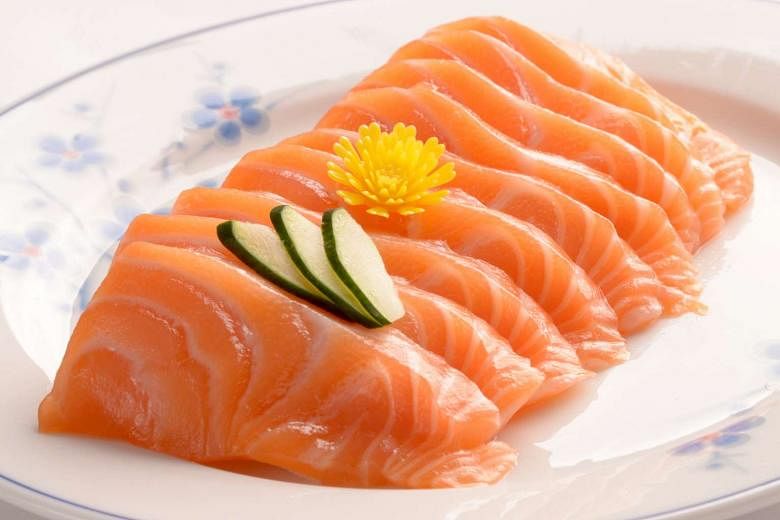SINGAPORE - The National Environment Agency (NEA) has found no food hygiene lapses at a Japanese eatery following a claim from a man that he had been hospitalised after dining there.
Facebook user Randall Heng, in a post last Wednesday (Dec 30) night, said he had eaten 20 slices of sashimi at Seletar Mall's Sushi Express.
Some of the sashimi slices had traces of blood and he put them back "untouched" onto the conveyor belt, he claimed.
Sushi Express, a popular conveyor-belt sushi chain, has 14 outlets - including two takeaway stores - in Singapore.
"Please heed my advice and avoid eating all kinds of raw food (fish especially!!!!). Unless you want to end up in the hospital like I did with a fever edging over 40 degrees, shivering till my lips turned purple," Mr Heng wrote.
His post was accompanied by a picture of what appeared to be his hand, hooked up to an intravenous drip at the hospital.
The post has since been shared over 670 times.
Responding to queries from The Straits Times, NEA and the Ministry of Health (MOH) said in a joint statement that they were aware of the case.
According to MOH, Mr Heng was examined at the hospital and has since been discharged. His illness was assessed not to be a Group B Streptococcus (GBS) infection. He is currently well, the statement said.
As part of the investigation, NEA inspected the Sushi Express outlet on Saturday (Jan 2) but did not find any lapse in food hygiene practices.
It also collected samples of ready-to-eat raw fish for testing.
The case comes in the wake of recent news that the Agri-Food and Veterinary Authority of Singapore (AVA) was testing both freshwater and saltwater frozen fish for GBS bacteria.
No traces of Type III GBS Sequence Type 283, a particular aggressive strain of the virus, were found in its tests on frozen saltwater fish.
NEA had banned the use of freshwater fish in ready-to-eat raw fish dishes at all food outlets on Dec 5 last year, although restaurants are still allowed to sell raw saltwater fish, which includes salmon.
The ban followed an unusual rise in cases of GBS infections last year, with 360 cases - including two deaths - reported, compared with 150 or so annually from 2011 to 2014.
About 150 of the 360 cases were linked to the consumption of raw freshwater fish typically eaten in porridge, and involved Type III GBS Sequence Type 283.


